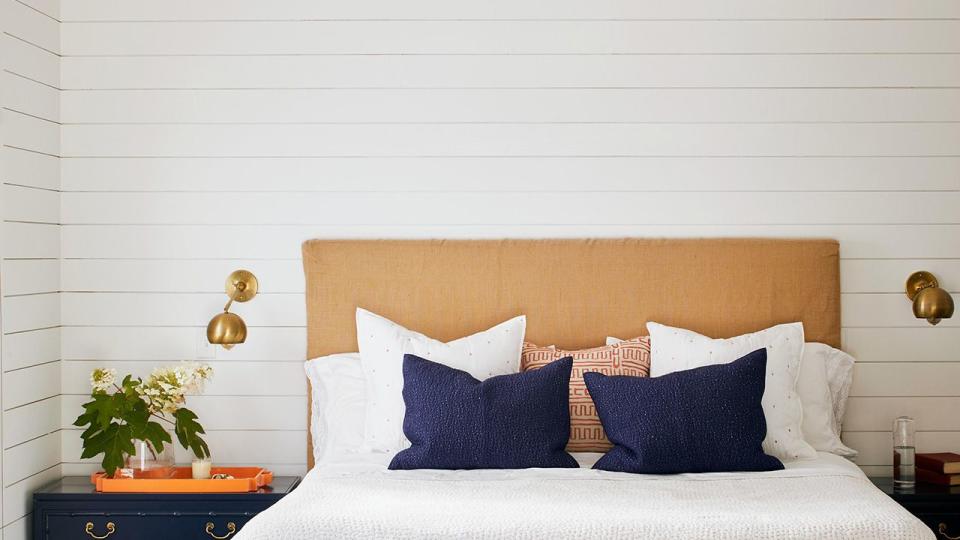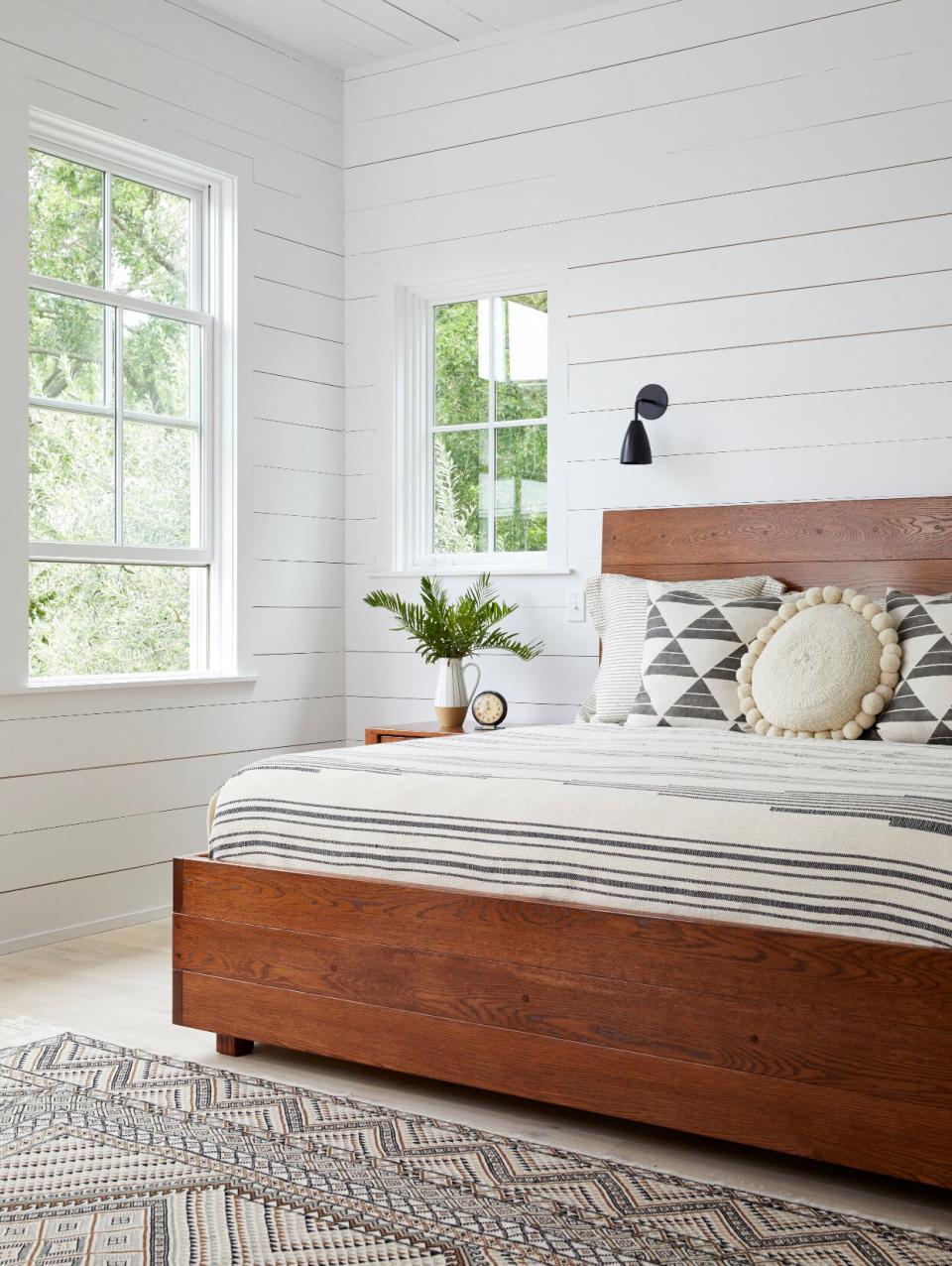How to Clean a Mattress (Including Stains and Odors) So You Can Rest Easy
You likely wash your bedsheets fairly regularly, but what about your mattress? The surface you sleep on every night can collect dust, body sweat, dead skin, pet hair, dirt, and other debris over time. Without regular cleaning, mattresses can become an environment for dust mites, bacteria, and mold or mildew, which can create unpleasant smells and cause irritation for those with allergies. To keep your bed fresh and odor-free, follow these tips on how to clean a mattress, remove mattress stains, and prevent dust and bacteria growth. You'll sleep better knowing your bed is clean!

Dera Burreson
Vacuum the Mattress to Remove Dust
For regular cleaning, plan to vacuum your mattress about every month to remove dust and debris. If you or family members have severe allergies, consider doing this each time you change the sheets. Turn off the beater bars, and run the vacuum very slowly over the mattress so it has time to draw in the dust and dust mites. Use the crevice tool for the edges.
To make this mattress cleaning strategy more effective, cleaning expert Mary Findley suggests letting the kids jump on the bed for a few minutes before vacuuming. "It brings dust and dust mites to the surface, where they are easier for the vacuum to inhale," she says.

David Tsay
Beat Your Mattress Annually
Be sure to remove dust from both sides of your mattress annually for the most effective clean. "Once a year in the spring, I haul my mattress to the patio, brace it against the back of my home, and do like Grandma used to do: beat it with a broom on both sides," Findley says. "The dust that flies is amazing." Alternatively, you can vacuum both sides well.
While you have the mattress removed from your bed frame, vacuum the box spring, too. Lightly spritz the mattress with straight distilled white vinegar to help kill bacteria and mold and discourage dust mites.

Brie Williams
Remove Mattress Stains
For best results, treat any mattress stain immediately. The longer liquids sit in a mattress, the likelier they are to foster mold and mildew growth or cause a permanent spot. Findley recommends using foaming shaving cream for mattress cleaning, in part because of its thickness. "Liquids soak right through a mattress, not allowing sufficient time to dissolve the stain," she says. "Foaming shaving cream contains denatured alcohol, which is a stain remover, and it's thick, so it sits on the surface to work on the stain." Wait 10-15 minutes, wipe with a damp cloth, and rinse with a 50-50 vinegar-water solution. Repeat if necessary.
Try these other helpful solutions for removing common mattress stains:
How to clean blood on a mattress: Clean with a 50-50 hydrogen peroxide-water solution.
How to clean urine, fecal matter, or vomit on a mattress: Try an enzyme cleaner, such as Bac-Out by Biokleen ($8, Target) or Nature's Miracle ($15, Target), which are typically available at pet stores. (Use before trying other methods, as residue from other cleaners will kill the enzymes before they can work.)

Kim Cornelison
More Tips for Cleaning Mattresses
Remove Mattress Odors
Use a mixture of cornstarch and baking soda to remove smells, says Leslie Reichert of Green Cleaning Coach. Simply shake it onto the mattress, let sit for a few hours or longer, then vacuum. "The cornstarch will absorb body oils, while the baking soda tackles odors," she says.
Air Out Your Mattress
When laundering sheets, strip the bed in the morning and don't put new sheets on until evening. "Allowing the mattress to air all day discourages dust mites and bacterial growth," Findley says.
Add a Mattress Pad
Remember, mattress pads aren't just for comfort. They keep your mattress cleaner, too, says cleaning expert Donna Smallin Kuper. Wash your mattress pad monthly in hot water, and machine-dry thoroughly unless the tag instructs otherwise.
Get Your Mattress Professionally Cleaned
For serious stains, consider calling a mattress-cleaning professional. Findley suggests hiring someone who will clean with steam rather than using chemicals, which can be irritating for some people. She also suggests pre-treating stains yourself with natural products, such as vinegar or peroxide, so your pro won't resort to commercial stain removers.

